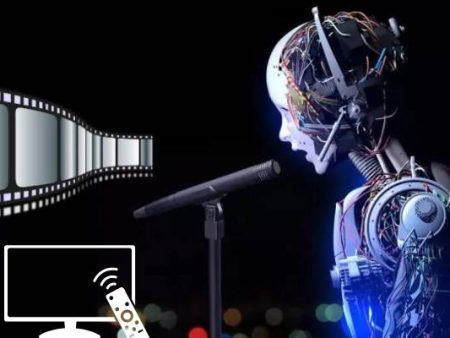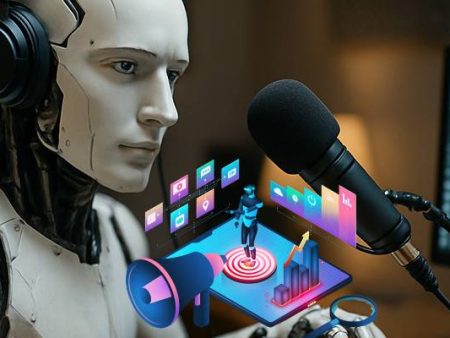What would it feel like to hear your favorite singer endorse a product they’ve never used? Or to listen to a beloved actor narrate an audiobook they never agreed to record?
We’re already there. Artificial intelligence has made it possible to replicate voices so accurately that, at times, even close family members can’t tell the difference.
On the surface, this technology is dazzling. It can bring back lost voices, give speech to the voiceless, and enable creative storytelling like never before. But underneath the wonder lies a messy ethical question: what happens when celebrity voices are cloned without consent?
In this article, I’ll walk through the rise of voice cloning, the temptations and dangers it brings, the cultural and emotional weight of celebrity voices, and why regulation, empathy, and collective responsibility matter. Expect a blend of data, examples, and a fair share of personal opinion along the way.
The Technology: How We Got Here
Voice cloning is built on deep learning models trained on speech recordings. By analyzing waveforms, prosody, pitch, and inflection, these models can synthesize new speech in the style of the source speaker.
With as little as 30 seconds of audio, companies like ElevenLabs and Respeecher can build highly convincing clones.
The AI voice generator market is growing fast. According to Grand View Research, the industry was valued at roughly USD 3.5 billion in 2023, with projections pointing to exponential growth by 2030.
It’s part of a broader movement of production transforming voice technology, reshaping entertainment, education, advertising, and accessibility.
But progress has outpaced governance. For celebrities, who depend on their voices as part of their livelihood and cultural impact, this raises sharp concerns.
Why Celebrities’ Voices Are Targets
Famous voices aren’t just sounds; they’re brands. Morgan Freeman’s narration carries authority. Beyoncé’s speaking voice conveys charisma. These aren’t interchangeable assets. They carry cultural capital, emotional resonance, and commercial weight.
When an AI model clones a celebrity’s voice, it taps into years — even decades — of personal labor, artistry, and reputation. Using it without consent amounts to identity theft, amplified on a global scale.
There’s also a financial motive. Advertisers and content creators recognize the persuasive power of familiar voices.
Instead of paying high licensing fees, some are tempted to sidestep agreements and generate a synthetic replica, cutting costs while still benefiting from the recognition factor.
That shortcut, however, crosses ethical lines.
The Voices Threats Side
The voices threats side of this technology is not hypothetical. Scammers have already used AI to clone celebrity voices for fraud. In one notable case, fraudsters used an AI-generated Joe Rogan voice to promote a fake supplement in a deepfake podcast ad.
Similarly, fake voice clips of political leaders have circulated online, spreading confusion and undermining trust in public figures.
The implications go beyond celebrities. If society learns that any voice can be faked, we risk a collapse of auditory trust. The phrase “I heard them say it” no longer guarantees truth. This is why the ethics of voice cloning go hand in hand with the ethics of misinformation.
Speech Down Behind the Tech
It’s worth pausing to consider what’s happening speech down behind the curtain. Voice models aren’t magical; they’re trained on real human recordings.
Many of those datasets are scraped from the internet without permission. YouTube interviews, TikTok clips, podcasts — they become raw material for AI training.
This means a celebrity’s carefully managed media presence, cultivated across years of work, can be quietly harvested to fuel systems that profit without them. It’s like borrowing someone’s diary to sell merchandise, except worse: it’s their voice, their essence.
Transparency is rare. Most people have no idea whether their voices are sitting in some dataset, waiting to be modeled.
The Emotional Weight of Celebrity Voices
Think about the grief-stricken fan who hears a deceased musician’s “new song” produced by AI. There’s both wonder and discomfort. On one hand, it can feel like a gift — a chance to hear from someone gone. On the other, it can feel exploitative, denying that person dignity in death.
Celebrity voices connect us to cultural memory. They’re part of how we process history and emotion. Hearing them used in unauthorized contexts dilutes that emotional bond, cheapening something that once felt unique.
As an audience member, I feel betrayed when I find out a celebrity’s voice was faked. It’s not just the loss of trust in the content; it’s the creeping realization that we might no longer know when we’re hearing something genuine.
Personalisation, Voice Marketing, and Manipulation
There’s another layer here — personalisation voice marketing manipulation. Companies want hyper-personalized ads. Imagine hearing your favorite actor’s cloned voice telling you why a product fits your lifestyle. The persuasive effect is powerful, bordering on manipulative.
Research shows that consumers respond more positively to familiar and trusted voices. A study from Stanford University highlighted how people attribute higher credibility to AI-generated voices that mimic trusted figures, even when informed they’re artificial.
When those voices are used without permission, it isn’t just a copyright issue. It’s a psychological manipulation issue, exploiting parasocial relationships between fans and celebrities.
Legal Landscape: Lagging and Fragmented
Currently, laws around voice cloning vary widely.
- In the United States, some states have “right of publicity” laws that protect against unauthorized commercial use of a person’s likeness, including voice. California, for example, has strong protections.
- New York expanded its laws in 2020 to include digital replicas of deceased performers.
- The European Union’s AI Act categorizes voice cloning as high-risk, requiring explicit consent.
But enforcement is patchy, and the international nature of the internet makes jurisdiction messy. A voice cloned in one country can be broadcast worldwide, leaving celebrities with little recourse.
Ethical Principles to Consider
When debating whether cloning a celebrity’s voice without consent is ethical, several principles stand out:
- Autonomy: Celebrities have the right to decide how their voice is used.
- Fairness: Profiting off someone’s voice without payment or permission is exploitation.
- Transparency: Audiences deserve to know when voices are synthetic.
- Respect for legacy: Posthumous voice cloning should involve family or estate approval, not opportunistic profit-taking.
Without grounding in these principles, we risk normalizing exploitation under the guise of innovation.
Potential Solutions
So what can be done? Here are a few paths forward:
- Licensing frameworks: Build platforms where celebrities can license digital versions of their voices with clear royalties.
- Mandatory disclosure: Require companies to label AI-generated voices, especially when they mimic real people.
- Watermarking technology: Embed inaudible signals into synthetic audio for detection.
- Stronger legislation: Expand right of publicity and intellectual property laws to explicitly cover voice cloning.
- Industry codes of ethics: Encourage self-regulation before governments impose reactive bans.
The Human vs. Machine Debate
Some argue that AI will never truly replace celebrity voices, because audiences crave authenticity. Others counter that younger generations, raised on digital filters and virtual influencers, won’t care whether a voice is “real” or synthetic.
Both may be true. Authenticity will remain valuable, especially in artistic and emotional contexts. But commercial interests will continue pushing synthetic voices to scale content.
This duality suggests a future where cloned voices proliferate in marketing, but human voices dominate in high-trust spaces like film and theater.
My Personal Take
When I think about unauthorized voice cloning, I feel a tug-of-war inside. Part of me admires the ingenuity. As a tech enthusiast, I see incredible potential in accessibility, in preserving cultural voices, in reducing production costs.
But as someone who values artistry and dignity, I feel queasy. Imagine pouring decades of work into your voice, only to find it reproduced endlessly, without consent, in contexts that cheapen your reputation. That isn’t progress — it’s theft disguised as innovation.
The thrill of hearing a synthetic Johnny Cash sing a new verse doesn’t outweigh the discomfort of knowing he never gave permission. It feels like a breach of trust with both the artist and the audience.
Conclusion: Shaping a Responsible Future
Celebrity voices are not public property. They are intimate, hard-earned, emotionally loaded assets. Cloning them without consent is more than a technical feat — it’s an ethical failure.
Yes, the technology is astonishing. It is also dangerous. The voices threats side includes fraud, misinformation, emotional exploitation, and the erosion of cultural trust. What’s speech down behind this technology is often invisible exploitation of human labor.
If we want a future where AI enriches rather than exploits, we must prioritize consent, fairness, and transparency. We must resist the lure of shortcuts and manipulation.
And we must recognize that while production transforming voice technology can reshape communication, it doesn’t absolve us of responsibility.
The choice isn’t between innovation and ethics. It’s whether we have the courage to demand both.

